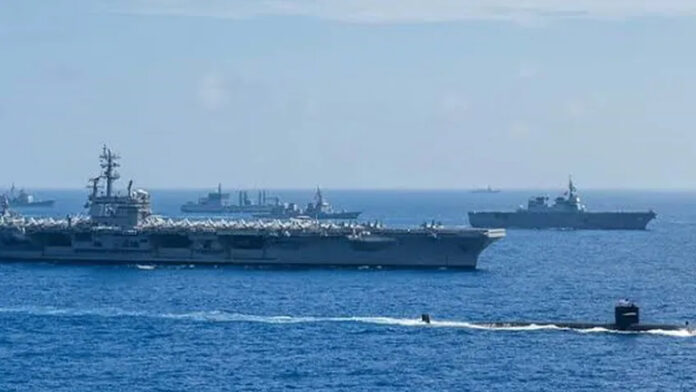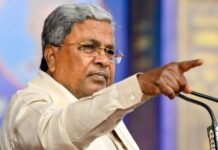New Delhi: In an era where geopolitical tensions and natural calamities often converge in the Indo-Pacific, the Indian Navy has emerged as a beacon of timely and reliable humanitarian assistance and disaster relief (HADR). From cyclones and tsunamis to medical emergencies and evacuations, India’s maritime force has consistently demonstrated its readiness, professionalism, and commitment to regional stability. This proactive and compassionate engagement has cemented the Indian Navy’s position as the preferred maritime partner in the Indo-Pacific.
Swift, Selfless, and Strategic: A Track Record of Timely Assistance
The Indian Navy’s HADR operations have spanned decades, but recent missions have highlighted its enhanced capabilities and strategic foresight. One of the most notable examples occurred in 2023 when Cyclone Mocha caused widespread devastation in parts of Myanmar. Within hours, Indian naval ships, prepositioned in the Bay of Bengal, were rerouted to carry relief material, medical personnel, and engineering support under Operation Karuna. The mission showcased India’s rapid deployment capability and its understanding of the cultural and logistical nuances of relief in foreign territories.
In December 2024, India extended humanitarian aid to Myanmar, Vietnam, and Laos through ‘Operation Sadbhav’ in response to the devastating Typhoon Yagi that struck the region. Indian warships were swiftly dispatched with disaster relief kits, medical supplies, and food provisions. The Indian Navy’s humanitarian gesture was widely appreciated by ASEAN leaders, reflecting the Navy’s reputation as a dependable regional responder.
These are not isolated incidents. The Indian Navy’s Operation Samudra Maitri in 2018, in the aftermath of the Sulawesi earthquake and tsunami in Indonesia, was another shining instance of India’s maritime compassion. Ships like INS Tir, Sujata, and Shardul carried relief supplies and medical aid to affected zones, proving once again that India does not wait for a formal request to help a friend in crisis.
Operation Sankalp & Beyond: Beyond Combat to Care
The Navy’s humanitarian efforts are also deeply embedded in its operational missions. During Operation Sankalp, launched in 2019 to ensure the safe passage of Indian-flagged vessels in the Gulf region amidst rising tensions, the Navy simultaneously conducted medical outreach. It assisted stranded seafarers, displaying dual-use deployment capabilities: military deterrence on one hand and humanitarian assistance on the other.
Similarly, Operation Vanilla, launched in early 2020 to assist Madagascar following devastating floods, drew international commendation. INS Airavat delivered over 600 tonnes of rice, medical teams and disaster response personnel, reinforcing India’s commitment to SAGAR (Security and Growth for All in the Region), a key pillar of its Indo-Pacific policy.
COVID-19 Crisis Response: Lifelines by Sea
During the COVID-19 pandemic, when most nations turned inward, the Indian Navy doubled down on outward assistance. Under Operation Samudra Setu in 2020, the Navy repatriated over 3,900 Indian citizens from the Maldives, Sri Lanka, and Iran. This large-scale non-combatant evacuation operation showcased India’s unmatched logistics coordination, medical preparedness, and diplomatic maturity.
Parallel to this, Indian naval ships delivered critical medical aid and vaccines to nations across the Indian Ocean Region (IOR) as part of the Vaccine Maitri initiative. From Seychelles to Mauritius, these missions helped bridge gaps in global vaccine access and reinforced the Indian Navy’s role as a carrier of hope, not just firepower.
Training, Partnership, Preparedness
India’s leading role in HADR training and capability-building in the Indo-Pacific further solidifies its credentials. The Indian Navy routinely conducts HADR-focused exercises, such as MILAN, CORPAT, and TROPEX, involving navies from Southeast Asia, Africa, and the Pacific. These drills are designed to fine-tune joint coordination, logistics handling, and medical emergency response in simulated disaster scenarios.
The annual IFC-IOR (Information Fusion Centre – Indian Ocean Region) collaboration, based in Gurugram, has enhanced real-time situational awareness and coordination for humanitarian missions. With over 50 partner countries and organisations, it is fast becoming a nerve centre for maritime domain awareness in the Indo-Pacific.
Strategic Soft Power at Sea
India’s increasing humanitarian outreach via its Navy is not just benevolence; it’s strategic soft power in action. By positioning its maritime forces as first responders rather than first aggressors, New Delhi builds trust and goodwill with nations that often find themselves on the frontline of climate change and resource vulnerability.
This contrasts with China’s military-centric approach in the Indo-Pacific. While Beijing focuses on territorial assertiveness, India’s maritime diplomacy, through credible and consistent HADR engagements, wins hearts and allies. It reinforces the idea of India as a net security provider, a stabilising force, and an inclusive leader in the region.
India’s Navy Anchors Trust in Troubled Waters
The Indian Navy’s legacy of humanitarian operations in the Indo-Pacific underscores a simple yet powerful truth: when disaster strikes, India responds. Whether evacuating citizens, delivering relief, or restoring infrastructure, the Indian Navy does not wait for the headlines to follow. It acts with urgency, empathy, and expertise.
By anchoring its maritime strategy in compassionate professionalism, the Indian Navy exemplifies what it means to be a trusted regional partner. In a world rocked by uncertainty, the Indian tricolour on a naval vessel approaching a storm-ravaged coast is more than a flag: it’s a symbol of solidarity and hope. And in that moment, India’s leadership sails far ahead of its rivals.
(Aritra Banerjee is the co-author of the book ‘The Indian Navy @75: Reminiscing the Voyage’)








